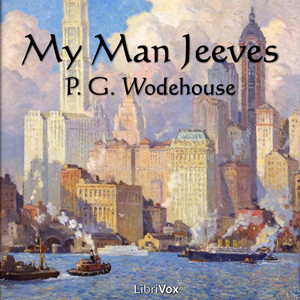- Chapter 1: The Afternoon of a Faun, Part 1
- Chapter 1: The Afternoon of a Faun, Part 2
- Chapter 2: Old Man Minick, Part 1
- Chapter 2: Old Man Minick, Part 2
- Chapter 3: Gigolo, Part 1
- Chapter 3: Gigolo, Part 2
- Chapter 4: Not a Day Over Twenty-One, Part 1
- Chapter 4: Not a Day Over Twenty-One, Part 2
- Chapter 5: Home Girl, Part 1
- Chapter 5: Home Girl, Part 2
- Chapter 6: Ain't Nature Wonderful! Part 1
- Chapter 6: Ain't Nature Wonderful! Part 2
- Chapter 7: The Sudden Sixties, Part 1
- Chapter 7: The Sudden Sixties, Part 2
- Chapter 8: If I Should Ever Travel! Part 1
- Chapter 8: If I Should Ever Travel! Part 2
Gigolo is a collection of short stories by Edna Ferber, best known for her novels Show Boat and So Big (for which she won the Pulitzer Prize).
Like most of her works, these stories take place in the heart of the country – the Midwest, from Illinois to Oklahoma. Her protagonists range from a twenty-something auto mechanic to a woman who finds herself “suddenly sixty.” In these stories we meet many strong women facing – and generally conquering – difficult circumstances. (“Having made the worst of it, you made the best of it,” she writes in The Sudden Sixties, one of the stories in this collection.) But she write also of men’s struggles with the rapidly changing social politics of the early 1900’s, showing how various characters resist, but ultimately move with a time in which women are gaining unprecedented power and influence of women from the home to the workplace.
Her stories are about real people; her characters are familiar to the reader, even a century after she created them. Her writing is clear, crisp, emotionally evocative, and always humorous. - Summary by Kirsten Wever
Like most of her works, these stories take place in the heart of the country – the Midwest, from Illinois to Oklahoma. Her protagonists range from a twenty-something auto mechanic to a woman who finds herself “suddenly sixty.” In these stories we meet many strong women facing – and generally conquering – difficult circumstances. (“Having made the worst of it, you made the best of it,” she writes in The Sudden Sixties, one of the stories in this collection.) But she write also of men’s struggles with the rapidly changing social politics of the early 1900’s, showing how various characters resist, but ultimately move with a time in which women are gaining unprecedented power and influence of women from the home to the workplace.
Her stories are about real people; her characters are familiar to the reader, even a century after she created them. Her writing is clear, crisp, emotionally evocative, and always humorous. - Summary by Kirsten Wever
There are no reviews for this eBook.
There are no comments for this eBook.
You must log in to post a comment.
Log in











